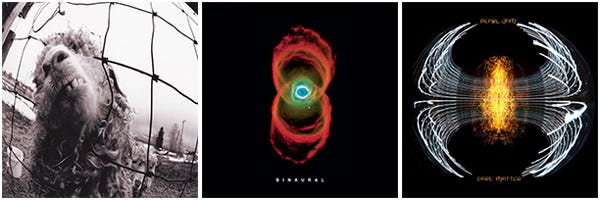New on Shfl, November 2024
Megan Iacobini de Fazio on Desert Blues, Phil Freeman on the Black Artists Group and Harold Heath on Kirk Degiorgio, plus fifteen new recommendations
Megan Iacobini de Fazio on Desert Blues
From Brazil’s saudade to the American blues and Ethiopia’s tizita, cultures worldwide have developed their own musical forms to express yearning, memory, and loss — feelings that transcend language. For the Tuareg, it’s assouf, a sound shaped by the struggle to preserve their heritage and the sorrow of a lost homeland.
Collections
Phil Freeman on the Black Artists Group
The Black Artists Group (BAG), formed in St. Louis, Missouri in 1968, is often seen as a junior stepsibling to Chicago’s Association for the Advancement of Creative Musicians (AACM), which launched a few years earlier. But while the AACM was focused entirely on music, BAG was a multidisciplinary arts organization that included writers and poets, dancers, actors and painters.
Harold Heath on Kirk Degiorgio
Degiorgio’s been responsible for a series of classic releases over the years, and while Detroit techno has often been an inspiration, he’s never really been a copyist. Rather, he’s drawn on all his musical loves and influences to create a rich, sophisticated and influential back catalogue that blurs and sometimes transcends the boundaries between techno and jazz, and which also includes finely crafted jazz funk, ambient, deep house, broken beat, spiritual jazz, library music, neoclassical, fusion, electro, and synth-funk, along with a pair of albums as one half of soul/pop band The Beauty Room.
Reviews
Ned Raggett
Coil - Unnatural History (Compilation Tracks Compiled)
In 1990, on the cusp of returning to full-length work with the following year’s Love’s Secret Domain, Coil issued the first in what would be an irregular series of collections documenting a variety of one-off contributions and appearances.
Coil - Unnatural History II (Smiling in the Face of Perversity)
Released in 1995, during the semi-lull in official Coil activity due to the never completed Backwards sessions and what would be separate albums in various alternate guises, Unnatural History II continues an overview of rarities and one-offs by the group, this time drawing not just on compilations but various B-sides, EPs, singles and then-unreleased songs.
Coil - Unnatural History III: Joyful Participation in the Sorrows of the World
The final entry in Coil’s Unnatural History series, released in 1997, didn’t mean there were further earlier uncollected rarities still plus more to come in the years that remained for the duo. But it still serves as a good in-the-moment catchup, featuring singles, compilation appearances, remixes and more across what was rapidly approaching a fifteen year continuing burst of creativity.
Harold Heath
Audrey Powne - From the Fire
From The Fire is the accomplished debut from trumpeter and producer Audrey Powne, who wrote, composed and arranged the entire album as well as singing and playing piano, organ and Rhodes. It’s an expansive, sumptuous yet delicate-sounding album, which freely modulates between the rules and boundaries of jazz, classical and R’n’B, resulting in an epic, beautifully orchestrated celestial soul-jazz collection.
Tara Lily - Speak in the Dark
The debut album from British Bengali artist Tara Lily is an electronic jazz and soul conceptually based on the artist’s experience with ADHD. Her sound palette is synths, electronic percussion, piano, and string arrangements and the mood is dreamlike, at times pensive, at times blissful.
Dabeull - Analog Love
Created with analogue keyboard sounds, plastic synth strings, creamy electric piano chords, squiggly chrome-edged G-funks and Bernie Worrell-esqe synth basslines that perfectly balance heft and squelch, Dabeull carves out a sumptuous sonic space that faithfully recalls the licks of 80s machine soul while benefiting from gorgeously fat and round 21st-century dance music production.
Rick Anderson
Culture - Trod On
Usually, when people talk about the best work of this great reggae harmony trio, they bring up early Joe Gibbs releases like Two Sevens Clash, or the Virgin Front Line classics Cumbolo and International Herb. And don’t get me wrong; those are essential albums. But this 1993 effort released on the Heartbeat label is another one.
Prince Jazzbo - Ital Corner
He got into a legendary beef with his contemporary I-Roy and every time they exchanged diss tracks Jazzbo came out looking like something of a fool. But when he kept to his own musical business he could regularly produce very fine performances, and when he teamed up with the brilliant (and crazy) producer Lee “Scratch” Perry for Ital Corner the results were both weird and magnificent.
Gigi - One Ethiopia
As is typical of Ethiopian pop music, songs are as likely to be written in a fast, loping 6/8 or 12/8 as in the more conventional (in the West) 4/4. The horns that are often abundant in Ethiopian music are here approximated by synthesizers, but otherwise this is very straight-ahead Ethiopian pop: Gigi not only has a gorgeous natural voice, but she’s also a master of the graceful melisma, and on songs like “Until When?” and “Without” it turns beautiful, looping somersaults all around the melody notes.
Chris Catchpole
The Dylan II - Farewell To Yesterday’s Memories
Japan’s folk scene in the 1970s can provide a continuous source of bounty for cratediggers who know where to look. Masaji Otsuka and Yoh Nagai took their name from the Osaka coffee bar and venue which provided a fulcrum for the Kansai folk rock scene from the end of the 60s, and their 1972 debut on Underground Record Club is an absolute gem.
Bananagun - Why Is the Colour of the Sky?
The Melbourne outfit’s 2020 debut, The True History Of Bananagun, served up a heady brew of freak-fried psych and frenetic Afrobeat, but here they’ve opened their third eyes even wider to encompass an entire history of mind-altering music. From the mannered whimsy of post-Pepper psychedelic pop to astral plane-traveling space jazz, thunderous krautrock, wobbly Tropicalia, gnarled acid folk and beyond, it’s all swept up in these ten, fleet-footed songs.
Office Culture - Enough
The latest offering from Brooklyn soft rock project Office Culture, aka Winston Cook-Wilson, finds him stretching his talents over an expansive 16-track double album. The electric piano gloop, sharp mind and raised eyebrow of his previous efforts are still present, but like his clear heroes Donald Fagen and Walter Becker, Cook-Wilson is keen to show off some of the other strings to his bow.
Hank Shteamer
Pearl Jam - Vs.
Ten will forever stand as the archetypal Pearl Jam album, but a clear-eyed look at its 1993 follow-up, released at the height of the band’s vertiginous rise to fame, suggests that they might have actually peaked here.
Pearl Jam - Dark Matter
A Pearl Jam superfan, Watt urged the band into a more collaborative and spontaneous mode, yet these songs feel surprisingly lived-in, from the title track, a stomping, anthemic hard-rocker, to “Wreckage,” a folky, midtempo tune elevated by Vedder’s still-potent vocal majesty.
Pearl Jam - Binaural
…unlike certain of its successors, Binaural notches convincing wins in a variety of moods, from reflective, downtempo efforts like “Light Years” and “Thin Air” to complex, ornery art-punk workouts such as “Insignificance” and “Grievance,” which bear a striking resemblance to the contemporary output of noted Eddie Vedder favorites Fugazi.









